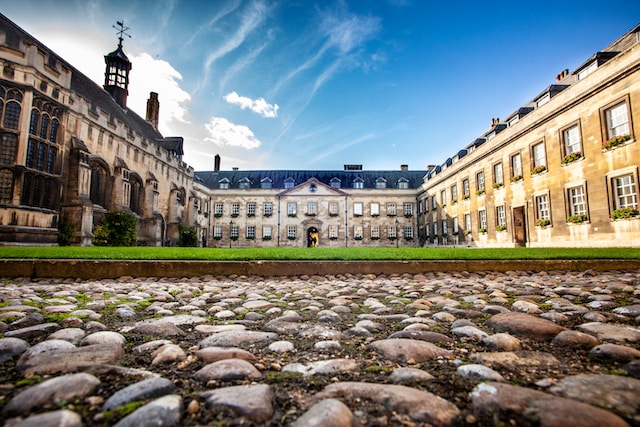Cornell College is a private liberal arts college located in Mount Vernon, Iowa. Founded in 1853, the college is known for its distinctive One Course At A Time curriculum, which allows students to focus on one class at a time for three-and-a-half weeks. Like any college, Cornell has its pros and cons, which I will discuss in detail below.

Pros:
- Distinctive curriculum: Cornell’s One Course At A Time curriculum is a unique and innovative approach to education that sets it apart from other colleges. This intensive format allows students to focus on one class at a time, which can lead to deeper engagement and understanding of the material. It also allows for greater flexibility in scheduling and the opportunity for more immersive experiences, such as field trips and research projects.
- Strong academic programs: Cornell offers a wide range of academic programs, including majors in the humanities, social sciences, natural sciences, and fine arts. The college has a strong reputation for academic excellence, and its graduates are well-prepared for graduate school or careers in their chosen fields.
- Small class sizes: With a student-to-faculty ratio of 10:1, Cornell offers small class sizes that allow for more personalized attention and interaction with professors. This can lead to a more supportive learning environment and greater opportunities for mentorship and collaboration.
- Engaged community: Cornell has a strong sense of community, with a diverse student body and a variety of extracurricular activities and clubs. The college also places a strong emphasis on service and civic engagement, providing students with opportunities to make a difference in the local community and beyond.
- Beautiful campus: Cornell’s campus is situated on a hill overlooking the town of Mount Vernon and is known for its beautiful architecture and natural beauty. The campus features a mix of historic and modern buildings, as well as green spaces and outdoor recreation areas.
Cons:
- Limited diversity: While Cornell is committed to diversity and inclusion, the college has struggled to attract and retain a diverse student body. As of 2020, just 11% of Cornell’s students were Black, Hispanic, or multiracial, and the college has faced criticism for not doing enough to address this issue.
- Limited resources: As a small college, Cornell may not have the same resources as larger universities. This can include limited research opportunities, fewer extracurricular activities, and a smaller library collection. However, the college does have a strong network of alumni and supporters who provide funding and other support for students and programs.
- Isolation: Mount Vernon is a small town located about 20 miles from Cedar Rapids, Iowa’s second-largest city. While some students may appreciate the quiet and peaceful atmosphere of the town, others may find it too isolated or lacking in cultural and entertainment options.
- Weather: Iowa’s climate can be harsh, with cold winters and hot summers. This can make it challenging for some students to adjust, particularly those who are from warmer climates.
- Expensive tuition: As a private college, Cornell’s tuition and fees are relatively expensive. However, the college does offer a variety of scholarships and financial aid options to help students cover the cost of attendance.
Conclusion:
Overall, Cornell College is a strong choice for students who are looking for a unique and innovative approach to education in a supportive and engaged community. While there are some challenges that come with attending a small college in a small town, Cornell offers a high-quality education, strong academic programs, and a beautiful campus. It is important for students to carefully consider their goals and priorities when choosing a college and to weigh the pros and cons of each option before making a decision.

